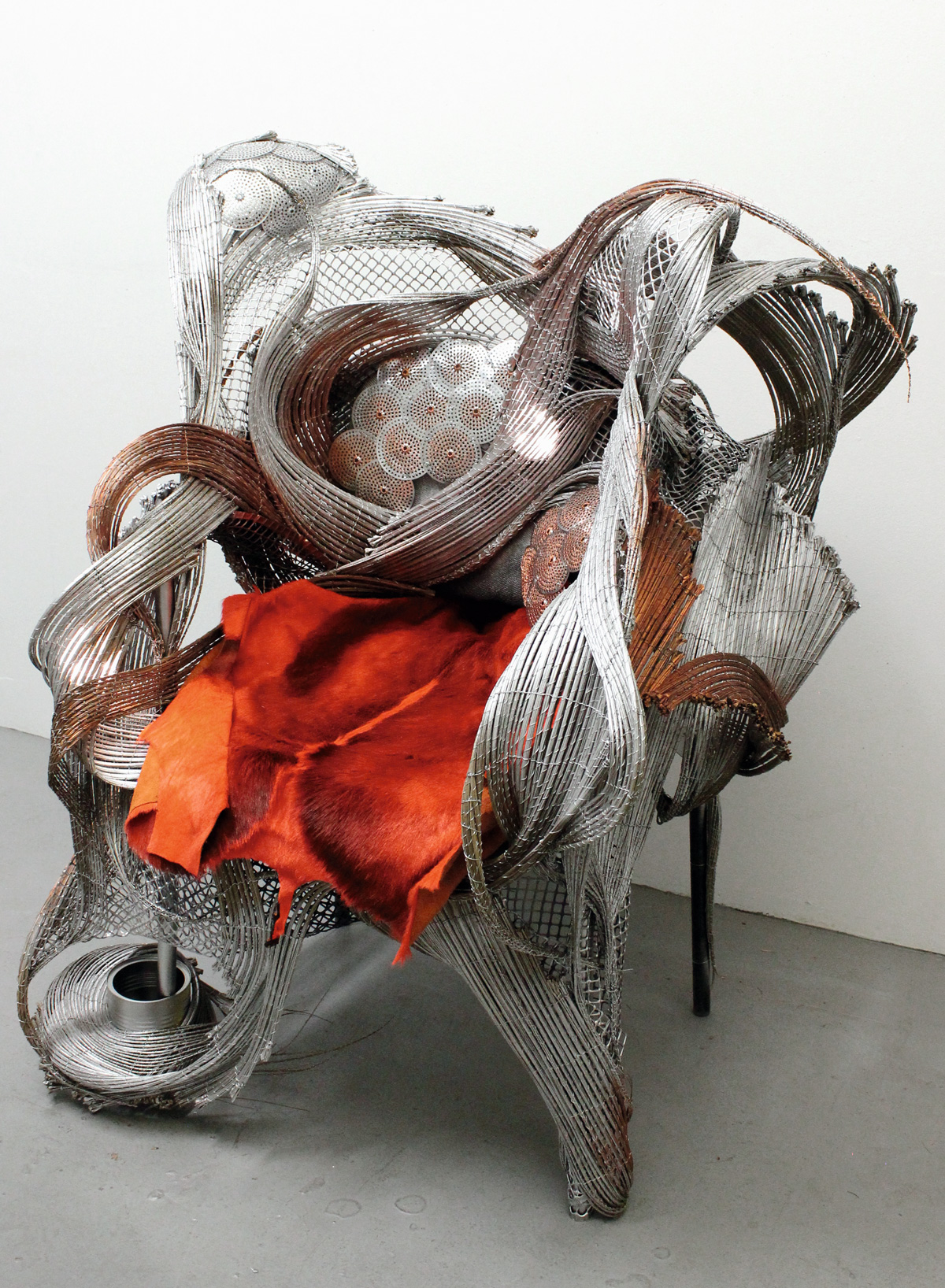Adejoke Tugbiyele: A Plea From the Heart
An installment of my regular column "Letter from America" in Crafts Magazine, March/April 2018.
On 12 August 2017, the historic city of Charlottesville, Virginia, made international news for all the wrong reasons. A rally entitled ‘Unite the Right’ drew a small but fervent clutch of white supremacists, as well as a larger group of counter-protestors. Then the unthinkable happened: one of the racists got behind the wheel of his vehicle and ploughed it into the crowd, killing one person and injuring many others.
Now, imagine that you were an artist asked to show in Charlottesville, about six months later. Imagine, further, that you were (a) black, (b) a woman, (c) the child of immigrants, and (d) gay. What might you want to express? This is the question that faced the Harlem-based artist Adejoke Tugbiyele when she was invited recently to show at Second Street Gallery – just blocks away from the site of last year’s incident. Her response might surprise you. What she really wants to bring to Charlottesville, she says, is love.
To understand that sentiment, it helps to know a little of Tugbiyele’s life story. Though born in America, she spent some of her growing-up years in Nigeria, where she was raised a devout Christian. Over time, her family’s religious commitments came to seem somewhat limiting; among other things, she noticed the church’s disregard for time-honoured Yoruba beliefs and customs, which interested her greatly. She still considers herself religious (she once wished me ‘a grace-filled weekend’), making her somewhat unusual within the ranks of contemporary artists. But her spiritual life has as much curiosity as conviction in it. She is open, she says, to the blessings of all faiths.
This ecumenical attitude lies at the core of Tugbiyele’s art. Her star has been rising of late, as she has developed a complex repertoire of sculptures and dance-based performances. These often feature intricately crafted, oversized masks made from palm fronds, metal drain covers, copper wire and other materials. In performance, she typically holds short brooms like those used in Yoruba divination ceremonies – a means of ritually cleansing a space.
Lately, she has also been collaborating with her partner Sisipho Ndzuzo, a gifted musician from South Africa who plays percussion and sings. Ndzuzo’s lyrical accompaniment in the click-articulated Xhosa language summons a whole world of emotion, of longing and belonging at once.
Tugbiyele’s costumes can be seen alternatively as experimental disguises or assertive self-portraits. Despite the traditional basis of her imagery, much of which derives from Yoruba spiritual precedents, she also goes in for hyper-real touches straight out of a budget science fiction film – LED lighting and silver spray paint. She is interested in the idea of an artificial skin that is literally and figuratively flexible, suggesting the ‘plasticity that marginalised groups often need to acquire for survival within rigid structures’.
She employs the iconography of queer identity, too: one costume she plans for an upcoming performance in South Africa includes a long, black dildo. It’s a complex brew, and a provocative one.
Adejoke Tugbiyele, My Queen's Throne, 2018. Photo: Courtesy The Artist.
That said, Tugbiyele’s work is not explicitly political, and her views are more humanitarian than they are partisan. ‘I believe poverty often lies at the foundation of hate and discrimination,’ she says. ‘I also believe discourse around race, gender and sexuality are incomplete without considering class and economy.’ Her experience of traversing cultural distance makes her an ideal spokeswoman for this position. Her investment in craft plays a role, too. In her view, each loop of thread or wire in her work is ‘a meditation, a prayer’.
In a starkly divided America, such reverence for hand craftsmanship might be one of the few remaining universals. In a country that doesn’t agree on much, artisanal values find favour on both sides. Brooklyn and Virginia have knitters aplenty. Yes, the style and attitude are different – I’ve yet to meet a Republican ‘yarn bomber’– but across the spectrum there is respect for the work ethic, the care and consideration, and the fundamental human connection that a well-made thing can embody.
In this context, Tugbiyele’s presentation in Charlottesville is not just any emerging artist’s solo show. She has written of her desire to speak in ‘the language of the heart – one we can approach by shifting conversation from physical appearance to shared human values, regardless of identity’. At other places and times, that kind of language may have seemed idealistic. Right now, it seems essential.
In the often-reductive terms of American identity politics, Tugbiyele happens to fit into nearly every category currently facing oppression. If she were angry and embittered, I wouldn’t blame her one bit. Instead, she has crafted an imaginative identity for herself based upon hope, one that transcends the sum of her parts. There is a generosity of spirit in this that is in short supply these days. If Tugbiyele can find that within herself, perhaps we all can do the same.
